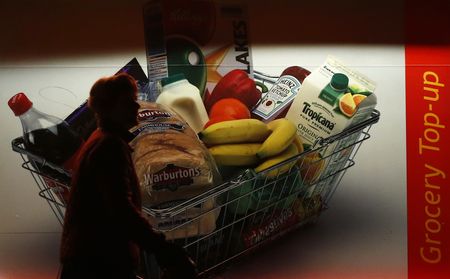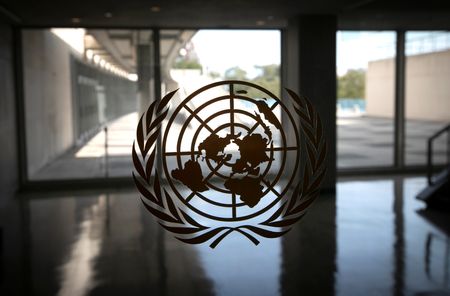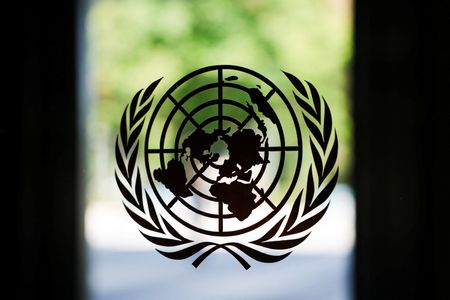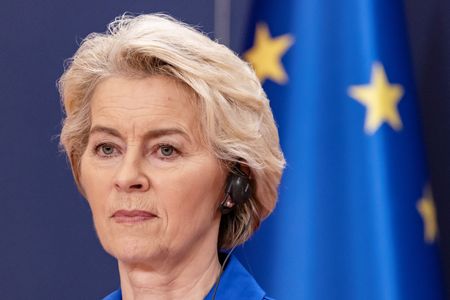By William Schomberg and David Milliken
LONDON (Reuters) -British inflation hit an eight-month high in November, but the rise in services prices – watched closely by the Bank of England as an underlying measure of inflationary pressures – held steady, offering the central bank a little bit of relief.
Investors added slightly to their bets on interest rate cuts by the BoE next year – having slashed them on Tuesday after strong wage growth data – and sterling weakened as official data showed consumer prices rose by an annual 2.6% in November.
That was the highest inflation rate since March, up from 2.3% in October.
The rise meant inflation was moving further away from September’s 1.7% – the first time that inflation had fallen below the BoE’s 2% target in almost three-and-a-half years, during which time it topped 11% at its peak.
“Another consecutive monthly rise in inflation, reaching its highest level since March, underscores the persistent price pressures within the UK economy,” Martin Sartorius, principal economist at the Confederation of British Industry, said.
The faster price growth was in line with economists’ expectations in a Reuters poll.
Services inflation – which the BoE views as a key measure of underlying price pressure – held at 5.0% in November, unchanged from October, the Office for National Statistics said.
The economists polled by Reuters had mostly expected a slight increase in service price inflation to 5.1% although the BoE had expected it to dip to 4.9%.
Britain’s central bank is moving more slowly than others to lower borrowing costs and it is expected to keep interest rates on hold on Thursday after its December meeting.
Britain’s headline inflation rate in November was higher than in France, Germany or the United States.
The BoE is worried about persistently strong wage growth – data on Tuesday showed pay rose by more than expected – and the new government’s tax rise for employers and higher public spending is also expected to filter through into higher prices.
Some economists have predicted headline consumer price inflation is likely to hit 3% in 2025.
The BoE predicted consumer price inflation in November would be 2.4% when it published a set of projections six weeks ago.
SERVICES INFLATION
James Smith, an economist with ING, said services inflation was likely to remain stuck at around 5% for the next few months but could fall as annual inflation-linked adjustments to prices for phone and internet services are made in the coming months.
“These are often tied to past rates of headline inflation which, through 2024, has been pretty benign,” Smith said. “Those annual price hikes for various services should therefore be less aggressive next April than we saw earlier this year.”
The increase in the headline rate of inflation was broad-based but most prominent for transport – particularly petrol and car purchase costs – and was only partly offset by smaller rises in air fares and the cost of eating out.
The BoE has said it will move only gradually with cuts to interest rates despite signs that Britain’s economy is losing momentum.
The ONS said its measure of core inflation, which excludes energy, food, alcohol and tobacco, picked up to 3.5% in November from 3.3% in October.
Factory gate price data showed prices charged by manufacturers rose 0.3% in monthly terms, the most since April, echoing hints of inflation pressure in recent surveys of businesses.
(Writing by William SchombergEditing by David Milliken and Peter Graff)










